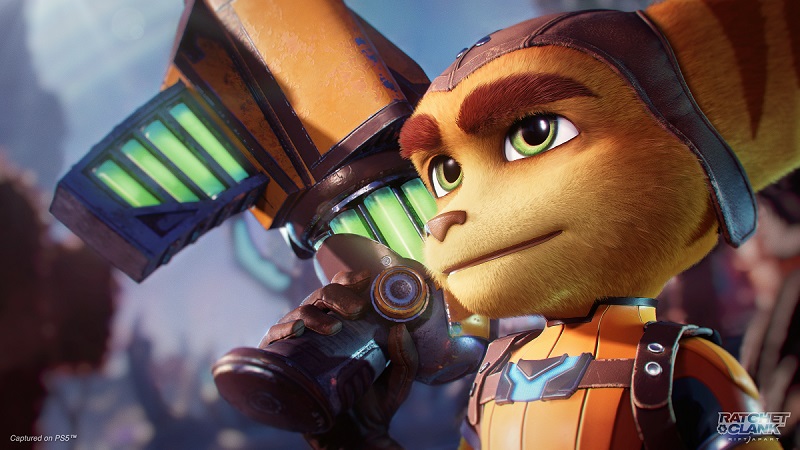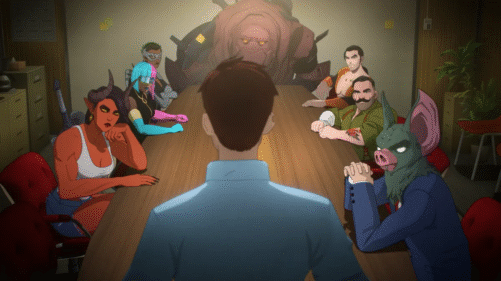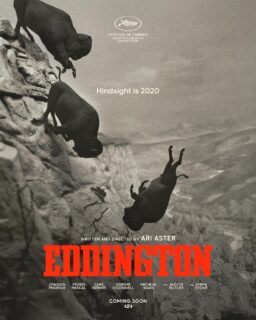Film fans may vaguely remember the 2016 adaptation of the Sony franchise “Ratchet & Clank,” which was met with a critical and commercial shrug. It’s a shame because this is series is rich with interesting characters, settings, and stories, one that has unfolded over a remarkable 16 games since the 2002 PS2 original. Since then, the basic core of the “Ratchet & Clank” experience hasn’t really changed—a heroic Lombax named Ratchet and a clever robot named Clank have to save the universe over and over again, and they do so with a fantastic mix of weaponry in an exaggerated animated style. The 16th game in this series, “Ratchet & Clank: Rift Apart” lands on the PS5 on Friday, June 11th, and it’s one of the very few games this summer that feels like an event. COVID-19 hit the video game industry harder than any other, leaving massive holes in the 2021 release schedule, and Sony and Insomniac Games hope that “Rift Apart” can be the free-time answer for gamers around the world. It’s a fun game that doesn’t rewrite any of the rules of the “R&C” franchise, which is both comforting and a little disappointing at the same time. While it’s undeniably enjoyable and every “Ratchet” fan will want to play it, it also feels a little slight for the first next-gen iteration of characters as beloved as these ones, both in ambition and playtime.
Taking place following 2013’s “Ratchet & Clank: Into the Nexus” and before the 2016 remake of “Ratchet & Clank” that coincided with the release of the film, “Rift Apart” centers again on a battle between the title characters and the notorious Doctor Nefarious. After the opening sequence/tutorial, a rift opens into another dimension and the villain jumps off to do what he does and try and destroy it. It turns out that the version of the good doctor over there has beat him to it and Emperor Nefarious is a far-more-dangerous version of the franchise’s big bad. Of course, there’s also an alternate version of Ratchet in the form of Rivet, a female Lombax, who is leading a resistance force against Nefarious. Over the course of the game, players alternate playing Rivet and Ratchet, even if the alternate universe concept feels a little underdeveloped.

Most of all, “Rift Apart” feels incredibly familiar. The weapon wheel and most of the bad-ass technology returns with a few old guns, a few new ones, and a few riffs on classics. It’s a game wherein the player has to constantly be switching weapons due either to situation or lack of ammo. It’s also a game wherein people will find their favorites and upgrade them accordingly. I became a fan of a weapon that shoots and chains lightning across enemies, along with the Buzz Blades, which are kind of exactly what they sound like. The game is constructed as a series of combat scenes, wherein Ratchet or Rivet have to defeat waves of enemies to progress the story. Sadly, other than the inclusion of some dinosaur enemies from Rivet’s dimension, the enemies really blur together this time. Luckily, the creativity of the weapon design still keeps the action fun and addictive.
The only real new addition to the gameplay is something called the Rift Tether, wherein Rivet or Ratchet can suddenly pull themselves across the map. While it’s a neat idea, it’s underutilized, working kind of like a zip line in something like “Returnal”—a way to get one out of the line of fire or to a resource quickly, but rarely employed with a lot of strategy. With the exception of a few grinding sequences that will be familiar to “Ratchet” fans, and a few unique side missions, “Rift Apart” is a surprisingly direct game, relatively free of storytelling or gameplay twists. While it felt like the “Future” games really took these games in a new, exciting direction, “Rift Apart” feels like a more traditional “Ratchet & Clank” entry. And it comes in at a very short playtime. I was stunned to be told I was starting the final mission, thinking I was only about halfway through the game, and that was after doing several side missions as well.

Having said all of that, “Rift Apart” is never unenjoyable. It looks gorgeous, and it’s accompanied by a fantastic score from the great Mark Mothersbaugh that may be my favorite thing about the game. The legendary co-founder of Devo is, of course, an ace composer, who often works in animation, creating the scores for “Cloudy with a Chance of Meatballs,” “The LEGO Movie,” “Thor: Ragnarok,” and “The Mitchells vs. the Machines,” among many others. He contributes a great “adventure movie” score here that really enhances the gameplay. (Of course, gamers may remember that Mothersbaugh used to score games, providing ones for early “Crash Bandicoot” and “Jak and Daxter” games, but this is his first in over a decade.) It’s also worth noting that, like most PS5 games, the load times here are insanely fast, and the controller amplifies the experience, reacting differently to various weapons and sending other audio cues to the fascinating device in the player’s hand.
Ultimately, “Ratchet & Clank: Rift Apart” isn’t a must-play experience on the PS5 like “Returnal,” but more of a noble continuation of a fantastic series that’s approaching the two-decade mark. As Insomniac Games have moved on to focus on the “Spider-Man” series, which have been incredibly critically and commercially successful, they could have left “Ratchet & Clank” behind. It’s nice to see this series is still producing fun adventure games for kids and adults on the next-gen PS5. While it may not break the rules or stand out in the history of the franchise, there’s something comforting about the Lombax and his metal pal still being a part of the video game landscape.
Sony provided a PS5 review copy of this game.












